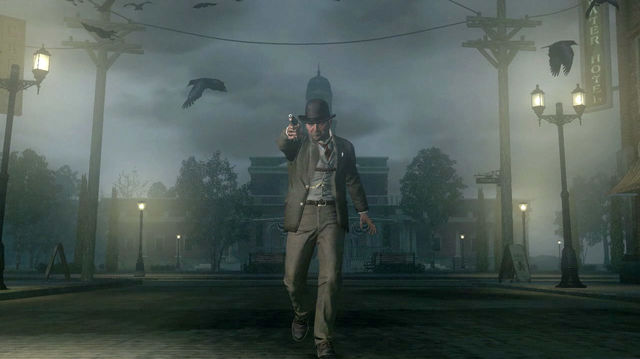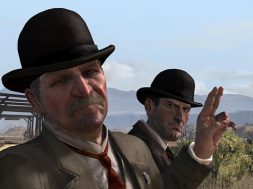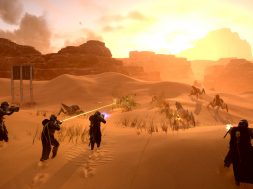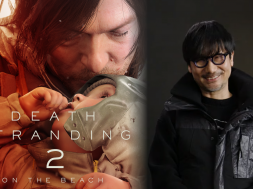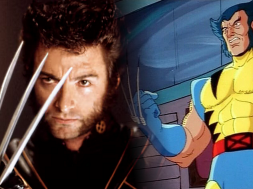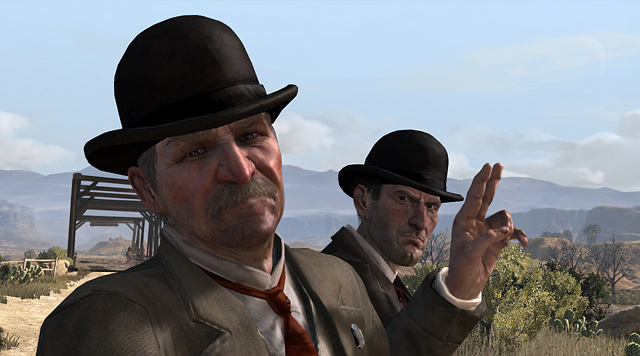
It’s not often video games achieve such a stellar quality for narrative like Red Dead Redemption. Rockstar have been known for knocking it out of the park on building worlds that are original in design but familiar in nature.
The Grand Theft Auto universe is such one built on popular culture’s view of major cities like Miami, New York and Los Angeles. Its most coveted vehicles are mash-ups of real-life motors, its weapons are ripped straight from film and set-pieces from the older games draw heavily on iconic scenes of their eras. But Red Dead Redemption’s story was not one of referential familiarity. Sure, it had borrowed motifs of the western genre, but the themes follow their own suit; Ones of death, morality, and the obvious redemption. The villainous figurehead of each of these is federal agent Edgar Ross, and this is why he’s the subject of this week’s Boss Rush.
Ross is a character driven by his own definition of justice. Upon tracking down protagonist John Marston, he and his colleagues hold Marston’s family hostage in order to strong-arm him into hunting down his former gang members. This is the first instance of Ross’s situational hypocrisy. He’s believes quote: “Everyone eventually pays for what they’ve done”, though seems to feel because of his badge and moral “high-ground” to the criminal element he deals with, this excuses him from his own mantra. This quote ties into the theme of redemption strongly as it helps contrast Ross’s personality with Marston’s.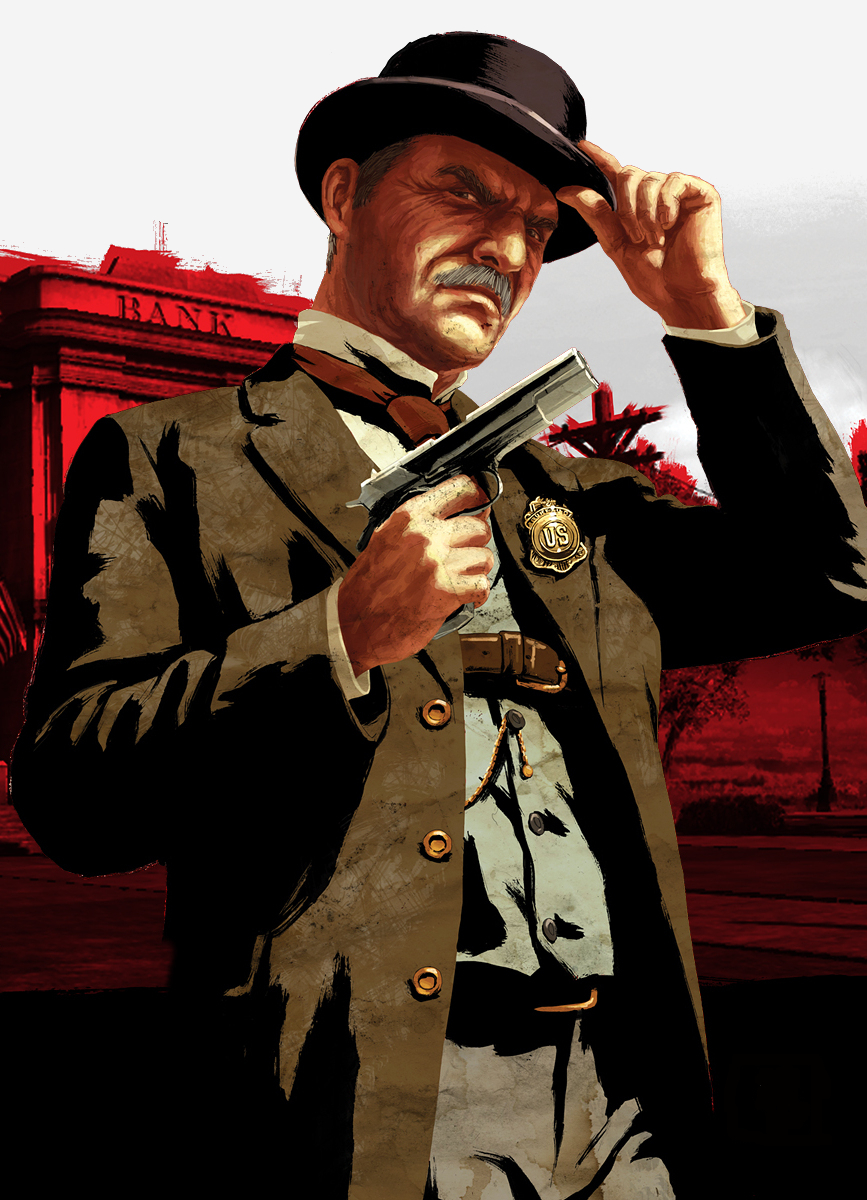
While Marston was a skeptic of government entities and the slow approach of civilization on the world he knows, he chooses to take Ross at his word that once he has put down the last of his gang, his criminal history will disappear; the only way he’ll be able to put his past behind him, get his family back and move on with his life.
Of course, through the entirety of Red Dead Redemption, Ross never intended to let him do such a thing.
This is foreshadowed during the final scene between Marston’s former gang leader Dutch van der Linde. As Dutch is cornered by John, he claims that neither of them can fight nature; the government will simply find another way to justify their existence by hunting down someone else after he’s killed. After confirming Dutch’s death, Ross unknowingly validates the former’s claim by joking “Let’s go find somebody else we can annoy.” to his colleague. He releases Marston’s family and allows John to return home to reunite with them. Unfortunately, Ross is not one to leave loose ends.
Marston returns to his family and ranch to live out a peaceful life, but it’s a time short-lived. The ranch is suddenly attacked by US Army soldiers and marshals in reperation for John’s past crimes. This is where Ross’s quote “Everyone eventually pays for what they’ve done” returns. Marston sends his wife and son away safely to face his foes head on himself. He realizes with nowhere left to run, the government will finally leave his family alone once he is gone. Upon seeing he is surrounded by soldiers outside his barn, he boldly steps out and draws his firearm to take as many of them with him. The attackers open fire, riddling Marston’s still-standing body with bullets. After a few haggard breaths, John collapses to his death. Ross shakes his head with a blank expression to which some have theorized why he does so. My own take is Ross is disappointed in Marston’s acceptance of his own fate. He took pride in manipulating a reluctant man to kill his former cohorts, enjoyment in torturing him with the truth of the encroaching government and the shaking of his head was one of an underwhelming end to the story he began.
Cut to three years later we see Marston’s son, Jack, burying his mother. With nothing holding him back, he sets out in search of revenge on Ross for his betrayal. After some searching, Jack comes upon a now retired Ross, duck hunting on a river bed. He exclaims he’s come for Ross, claiming to seek justice for the betrayal of his father. Ross claims John killed himself with his own past and that Jack should run along before he meets the same fate as his father. Both proceed to draw on one another though Jack comes out victorious. Ross’s death is the final echo of “Everyone eventually pays for what they’ve done”, one which calls to both his betrayal to John and possible foreshadowing of Jack’s future as a possible outlaw in the dying west.
For being a character hidden away until the third, Ross’s imposing presence as an untouchable yet unstoppable force made him a great villain. He represented everything John Marston had seen wrong with the changing times; a corrupt, holier-than-thou man who would only leave him alone when his use had ran out. Except he didn’t.
